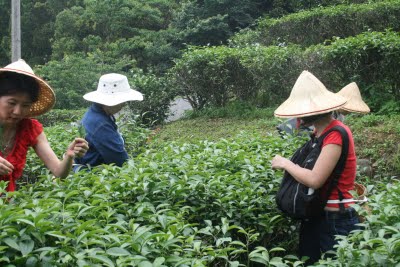 Q. Where do we get our teas?
Q. Where do we get our teas?
A. They come from all over the world – India, China, Japan, Taiwan, Sri Lanka, South Africa. We use carefully selected distributors, who monitor the trade practices and ethical standards of the tea.
Q.What is the difference between no-caffeine teas and decaffeinated teas?
A. All true tea has caffeine. Some herbal tisanes have no caffeine at all. Rooibos (South African Redbush) is one of those. It has never had caffeine, and never will. But teas which have caffeine can be “de-caffeinated.” There are several processes which remove the caffeine. The Carbon Dioxide process is the most common. MOST of the caffeine is removed. However, there still remains a trace of caffeine even in our Decaf Teas. The additional process usually causes the tea leaves to be smaller because of the further handling they must encounter.
Q. What is the shelf life of tea?
A. Two years. Longer (up to eight years) if the tea is vacuum packed or sealed in an air tight container.
Q. Should I refrigerate or freeze my tea?
A. No. The moisture in the refrigerator is harmful to the tea. Keep it in an airtight container at room temperature, away from bright light. The exception to this rule is for herbal powders, such as Matcha green tea . These can be refrigerated for longer shelf life.
away from bright light. The exception to this rule is for herbal powders, such as Matcha green tea . These can be refrigerated for longer shelf life.
Q. Are all the teas organic?
A. We carry some certified organic teas. To be certified as as an Organic Tea, it must be grown in a garden which has used organic husbandry for a minimum of two years. There are several organizations which certify tea gardens in Europe and in the United States. However, the entire tea business is a “clean” industry. Tea is typically grown at high elevations, where pesticides are not generally needed. Our distributors belong to associations which ensure ethical and clean standards for farming. We are confident that our teas are of the highest, cleanest quality, and we are constantly switching to as many organic sources as we can.

















